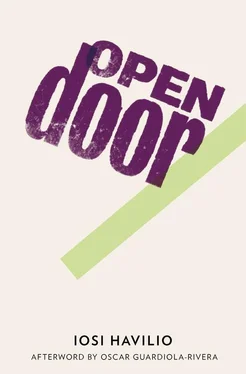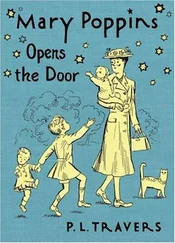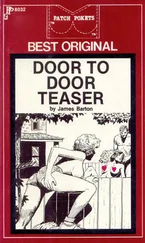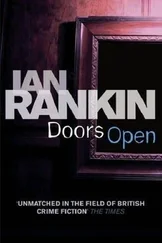Iosi Havilio - Open Door
Здесь есть возможность читать онлайн «Iosi Havilio - Open Door» весь текст электронной книги совершенно бесплатно (целиком полную версию без сокращений). В некоторых случаях можно слушать аудио, скачать через торрент в формате fb2 и присутствует краткое содержание. Год выпуска: 2013, Издательство: And Other Stories, Жанр: Современная проза, на английском языке. Описание произведения, (предисловие) а так же отзывы посетителей доступны на портале библиотеки ЛибКат.
- Название:Open Door
- Автор:
- Издательство:And Other Stories
- Жанр:
- Год:2013
- ISBN:нет данных
- Рейтинг книги:4 / 5. Голосов: 1
-
Избранное:Добавить в избранное
- Отзывы:
-
Ваша оценка:
- 80
- 1
- 2
- 3
- 4
- 5
Open Door: краткое содержание, описание и аннотация
Предлагаем к чтению аннотацию, описание, краткое содержание или предисловие (зависит от того, что написал сам автор книги «Open Door»). Если вы не нашли необходимую информацию о книге — напишите в комментариях, мы постараемся отыскать её.
Iosi Havilio
Open Door
Open Door — читать онлайн бесплатно полную книгу (весь текст) целиком
Ниже представлен текст книги, разбитый по страницам. Система сохранения места последней прочитанной страницы, позволяет с удобством читать онлайн бесплатно книгу «Open Door», без необходимости каждый раз заново искать на чём Вы остановились. Поставьте закладку, и сможете в любой момент перейти на страницу, на которой закончили чтение.
Интервал:
Закладка:
Iosi Havilio
Open Door
ONE
When the owner of the veterinary surgery told me to go to Open Door to examine a horse, I didn’t argue with her. The idea appealed to me. Open Door. It sounded strange.
I left Plaza Italia at around nine in the morning, with a sun as hot as midday overhead. First I took a long-distance coach, nearly an hour and a half of slow progress with a thousand interruptions, as far as the bus station at Pilar. It was full of people, the air conditioning was broken and there was a strong smell of ammonia. Someone showed me where to catch the local bus, which didn’t leave for a good half hour. On the road again, open country to the right, open country to the left, a roundabout, then another forty minutes until we reach Open Door. Outside the bus window, the plains, the gated communities and the cattle pass by.
The bus left as I crossed the railway lines. It was ten to twelve. A girl with plaits and chubby cheeks was watching me wide-eyed. As if she were there to welcome me. She was standing by the window of a house-cum-kiosk, under a green and white striped awning, half her body in the shade, the other half in the sun. She watched me as she chewed her gum with concentration, lips pursed.
I smiled at her but she didn’t react. She hardly blinked. I averted my gaze, looking in no particular direction: an unpaved street, straight and long, which eventually lost itself in the distance, where it was starting to cloud over. It was going to rain: sooner or later, it was going to rain. On the other side of the tracks, I was surprised by three giant silos, which looked as though they had been dropped there by a fleeing helicopter, three concrete monstrosities, apparently useless, but still standing. To my right was an area of intense green undulating woodland, threaded with zigzagging paths, like snakes. A few blocks away, a man on a bike appeared from a side street, his head covered by a pith helmet. As he turned, he raised a cloud of dust which followed him for a few metres and then faded away.
Could it be here? I have no idea. I turn round and the girl stops scratching at the earth with the points of her sandals, which reveal her tiny, overlapping toes.
Is this the way into town? I say out loud. The girl doesn’t answer and I don’t know whether to continue. Perhaps she’s deaf, I don’t know. I persist: Excuse me … Yes, this is it, she concedes unwillingly. She speaks with her back to me, seeming to watch me with the nape of her neck. She enters the house and reappears ten seconds later inside the window, stretching her thin arms across its full width, between the frame and the display of sweets.
Do you need a taxi? she asks. No, I say. The silence lasts as long as I can endure, but inevitably I start talking again: I’m being picked up. And her: Oh, good, she says and continues watching me, her eyes wider than ever.
There was another silence and I asked again, just to annoy her: Does the train pass by? Every now and then, but it doesn’t stop, just keeps going, she replied and immediately pursed her lips again and set about chewing her gum, determined not to utter another word.
The conversation ended there and although I made my way off along the edge of the road, for a long time I could feel the soft breeze of her gaze behind my ears. Those eyes bothered me.
It was already midday. The heat was becoming too much. And a light summer headache gripped me, ran through me, coming and going, from temple to temple. Just in time, I heard a rasping hum, somewhere nearby, but out of sight, as if someone had cleared their throat to begin talking. Like a purr.
Jaime is going to turn onto the street bordering the railway tracks in his truck or rastrojero , his pick-up, he’s going to stop in front of the house-kiosk, he’s going to get out, he’s going to look at me, dejectedly, and he’s going to wave hello.
We recognised each other immediately, it wasn’t difficult. I’m late, he says, or apologises, I don’t know which. It’s five past twelve, I say and, judging from the look in his eyes, with their mud-spattered lids, he doesn’t know whether I’m reproaching him.
As soon as Jaime starts the engine, the girl with plaits appears at the window of the house. I can see her in the rearview mirror.
Jaime grasps the gear stick and yanks it roughly in all directions, to free it I suppose. His hand is thick, with the rough skin of a reptile. He steps on the accelerator and the engine groans, gives a start and then dies. Jaime clenches his fist and hits the steering wheel gently, puffing through his pitted nose. He manhandles the truck once more and, after another false start, it stops protesting and begins to move.
This is the main street, Jaime explains to me, raising his voice to drown out the barks of the two or three dogs that are struggling to catch our wheels as we drive the first few metres. This is the shopping centre, it closes at half twelve, then no one opens up again until after siesta, half four. Here’s the school.
We covered what must have been the ten or fifteen blocks that made up the main street and, where the tarmac veered off, Jaime took a dirt road, the natural continuation of the previous one. Some five hundred metres ahead we turned right onto a narrow, single-track road, perpendicular to the one we had been following, guarded on one side by an endless line of almost uniform wire fencing, and on the other by a row of very tall poplars concealing a polo field flanked by low stands. Jaime stopped the truck in front of a gate and, without getting out, explained the confines of his land.
Straight ahead, behind the stable, there’s an olive plantation and on this side there are a few ranches, most of them abandoned. Further along this road there’s a shop, opposite there’s the polo field, and behind, where the fence ends, is the lake. Jaime got out to open the gate and paused for a minute looking towards the lake, the latch in his hand.
On the way to the stable, Jaime tells me that the horse is called Jaime, like him. He blushes a bit as he says it. He falls silent, regretting having mentioned it. He opens the stable door, but doesn’t go in, pointing out the horse from a distance, saying that he’ll wait for me here. I tell him he doesn’t have to, that he can come with me if he wants. Jaime fixes his eyes on his packet of tobacco and concentrates on rolling a fat cigarette. I don’t insist. I’ll go and examine him, I say, and Jaime responds with a long drag. He waits at the entrance, one foot inside, one out.
The other Jaime is a Creole-Spanish cross, aged between eighteen and twenty, a fairly common horse, with no distinguishing features. I listen to his heartbeat, the rhythm is normal. His pupils are stained a pale yellow and there’s the start of a burst blood vessel at the bottom of his left eye. He looks anaemic. But there’s something else, something conclusive. He watches wearily, docile, with the same expression that the other Jaime must be wearing behind me. I examine the tail to confirm a hunch: nodules between two and three centimetres in diameter spread along its length. I tell Jaime, who comes closer, I ask if he wants to touch. They’re melanomas, I say. He doesn’t ask anything, either he knows or he doesn’t want to. I go on: It’s a tumour that affects the tail and it’s common in Spanish horses. A tumour, repeats Jaime. As long as it doesn’t spread or reach any vital organ it can be treated, I explain. Jaime says nothing, he’s moved round to the other side of the horse and is stroking its back. He doesn’t look at me. I continue: There is medication that can delay the process, corticoids. But it’s irreversible, replies Jaime. I don’t know whether he’s asking or telling me. Yes, sooner or later, I say, but not immediately. There are cases where the tumour dissolves with no explanation. One in a thousand, I add so as not to give him false hope. The light is very dim and the horse’s mane appears darker than it must be in reality. The reddish tone of the head distinguishes it from the rest of the body. We’ll need to do a scan to give a more precise diagnosis, I say and Jaime raises his gaze with mild, almost imperceptible annoyance, as if I’d been hiding something from him. Equine scans are very expensive and I don’t feel it’s worth it, I think to myself without saying anything. Jaime’s eyes melt into those of the animal, becoming straw-coloured and sickly.
Читать дальшеИнтервал:
Закладка:
Похожие книги на «Open Door»
Представляем Вашему вниманию похожие книги на «Open Door» списком для выбора. Мы отобрали схожую по названию и смыслу литературу в надежде предоставить читателям больше вариантов отыскать новые, интересные, ещё непрочитанные произведения.
Обсуждение, отзывы о книге «Open Door» и просто собственные мнения читателей. Оставьте ваши комментарии, напишите, что Вы думаете о произведении, его смысле или главных героях. Укажите что конкретно понравилось, а что нет, и почему Вы так считаете.












